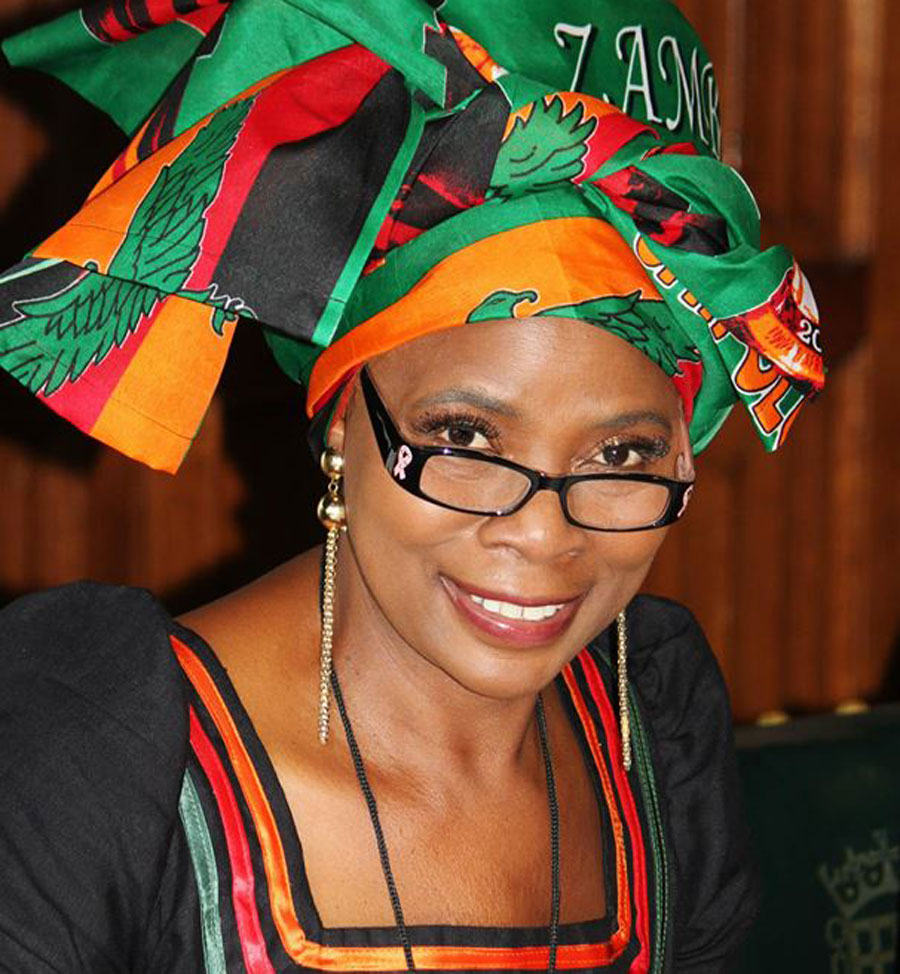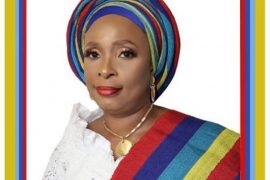Humanitarian and philanthropic activities have for many years assisted governments of the world to cater for the less privileged of society, and those in rural communities. These activities many have said is born out of a desire to give back to society.
In this interview, Dr Justina Mutale tells Amazons Watch Magazine how her burning desire to help people has driven her to do the things which she is so passionate about. She also points out the challenges faced by women in African male-dominated workplaces, as well as how those challenges can be overcome. Excerpt:
In a few sentences, please describe the person of Dr Justina Mutale.
I was born and grew up in my home country, Zambia and moved to the United Kingdom to pursue higher education. I am the founder of POSITIVE RUNWAY: Global Catwalk to Stop the Spread (of HIV/AIDS) and also the founder of the JUSTINA MUTALE FOUNDATION (for Women’s Leadership) and its JUSTINA MUTALE SCHOLARSHIP Programme. I also serve as President, Patron, Ambassador, Trustee, Advisory Board Member and Member of the Board of Directors for several organisations in the UK and overseas. Prior to founding my own organisations, I worked in the Commonwealth Secretariat, an inter-governmental international organisation based in London, where my portfolio was in the Gender Section, which addresses issues of Gender Equality and Women Empowerment, as well as gender mainstreaming in Commonwealth countries. Growing up in a large and loving family in Zambia instilled in me the importance of love – love for the self and love for others. It also instilled in me a sense of pride, positive competition and to strive for what I wanted in life. It taught me diligence, discipline and dedication to duty. Growing up in a large family taught me the importance of being self and socially aware and to be sensitive to the needs of others. This also taught me a sense of community responsibility and how to handle the outside world – when one grows up in such a huge family one literally meets all the different characters of the world within one’s own household! I learnt the importance of preparedness, precision, ultimate discipline, initiative, focus, diligence, tact, perseverance, endurance and resilience. When I was very young, around the age of 10, I wanted to become a nun or priest. I wanted to serve God. I also wanted to serve and save humanity. I wanted to feed the hungry. I also wanted to comfort the poor and I wanted to save sinners from burning in hell. And so, here I am, a humanitarian, trying to save humanity from a hell on earth in the 21st century!
You are clearly a champion in issues of advocacy and women’s right. Giving your wealth of experience, what are the dominant challenges faced by women around the globe?
The inability to adjust the male working model, coupled with the existing design of leadership roles, which are based on patriarchal values, as well as the institutional discrimination against women, form a huge hindrance to women’s ability to realize their full potential. It is no secret that in many parts of the world, cultures and social conditioning have prevented women from unleashing their full potential in all walks of life, and more so in leadership roles. In a world system riddled with rampant gender discrimination, which is also reflected in the education systems around the globe, you find that the lack of adequate education, training and knowledge transfer hinders women’s potential. I believe women are the backbone of society and are natural-born leaders. However, women are not provided with an enabling environment in a globally patriarchal society that does not give women enough opportunities. Every woman has the potential to lead. However, women often lack opportunities, skills and resources for realising their full potential. Some of the challenges hindering women include the lack of appropriate education, training, knowledge transfer and leadership development. In addition, leadership has been viewed through gender-biased lenses and you, therefore, find that although women are natural-born leaders, much of women’s leadership over the centuries has been invisible. Unlike their male counterparts, women often find themselves having to navigate societal and organizational landscapes that are gender-biased. Women also have to deal with ambivalent reactions that are deeply rooted in gender stereotypes. There is, therefore, an urgent need to remove the barriers that confine women to places already defined for them in particular prescribed roles.
What do you think are the solutions to these challenges?
Changing the mindset of the society (both men and women) and unlearning the traditional mindsets and social conditioning would help provide an enabling environment for women to realize their full potential. To do this, women need to be empowered with the appropriate education, training, information, knowledge and skills to enable them to improve themselves and to push the limits that have been placed on women’s full potential for centuries. Fast-tracking of skills development and knowledge transfer and incorporating women in all spheres of the global agenda would break down gender and economic inequalities in the world. A big challenge for us is to become aware that we need new lenses that will make us see things differently. Other challenges include the lack of mentors and support networks. I believe women need mentorship programmes and support networks to provide them with the much needed psychological and social support to enable them to effectively navigate societal and organizational landscapes and efficiently manage their roles in all walks of life
Would you say that the POSITIVE RUNWAY: Global Catwalk to Stop the Spread of HIV/AIDS is fulfilling the purpose for which it was founded?
Growing up in Zambia, I witnessed the devastation that the HIV/AIDS pandemic had on the families, communities and the country as a whole. At its peak, the HIV/AIDS pandemic pruned the professional and intellectual resource of Zambia and the rest of the African continent when it claimed the lives of highly educated men and women in their prime. At its peak, HIV/AIDS claimed the lives of Africa’s top managers, decision-makers and policymakers, which impacted negatively on the development of the continent and also resulted in the creation of a huge population of AIDS orphans and street children. Although the world has made tremendous technological and medical advancements in making people live comfortably with the HIV virus, it is baffling that after more than 35 years, the world still continues to experience new HIV/AIDS infections, more so in the young generation under the age of 35. Ironically, this is a generation that has never known a time without effective HIV/AIDS therapy. New infections to me, indicate that not enough has been done to stop the spread of HIV/AIDS, or perhaps that the message has somehow gotten lost and is not getting across to young people. It, therefore, occurred to me that new and innovative ideas were needed to contribute to the fight against the spread of HIV/AIDS in order to secure an AIDS-free world and AIDS-free generation. I also believe in the old adage, “Prevention is better than cure”. Consequently, I founded POSITIVE RUNWAY: Global Catwalk to Stop the Spread, a worldwide HIV/AIDS response campaign that aims to contribute to the global efforts to stop the spread of HIV/AIDS by speaking the same language as the young generation and utilising select mediums such as fashion, music and celebrity allure that grab and hold the attention of the 21st Century young generation and society at large to get the message across. POSITIVE RUNWAY has become a global brand and spans 6 continents spread across the globe. Our innovative efforts have been contributing to the global effort to stop the spread of HIV/AIDS and we have been part of the Civil Society delegations and official affiliated events of the International AIDS Conference, and HIV/AIDS events and collaborations which are held in various parts of the world. In addition, our various representatives around the world, participate in advocacy, training, prevention activities and other HIV/AIDS awareness events throughout the year and also on World AIDS Day to raise awareness and sensitise the youth and society at large of the effects of HIV/AIDS. Through our activities, the HIV/AIDS message is made crystal clear in an innovative, fun, interactive and culturally appropriate manner in a discourse that is appropriate to the 21st-century generation. POSITIVE RUNWAY is registered on the United Nations Department for Social and Economic Affairs (UNDESA) Civil Society Database and boasts of membership and affiliation of various other international and global organisations including the Bond Network, which represents the largest household names in the UK International Development Sector, who influence key decision-makers at national, European and global levels; and the People’s Global Action on Migration, Development and Human Rights among many other global affiliations, partnerships, co-operations and memberships.
What more do you think can be done to curtail the spread of HIV/AIDS among women?
Although HIV/AIDS is no longer talked about as much as it was a few years ago, HIV/AIDS is still spreading with a lot of new infections occurring in young women. And in many poor countries both men and women, as well as children are still dying from the effects of HIV/AIDS. Women and girls are most at risk of contracting HIV/AIDS when they not in a position to sustain themselves and have to depend on a male partner to provide for them. Multiple partners on the part of both the male and the female increase the risk of HIV. To curtail the spread of HIV/ADS among women, women need to be empowered to negotiate sex. Women need to be empowered to say ‘no’ and also to negotiate safe sex. We need to find innovative ways and solutions to help curtail the spread of HIV/AIDS among women by equipping and empowering women with the necessary knowledge, information and skills to enable them to understand the common symptoms of HIV and the methods of transmission, treatment and prevention as part of a holistic approach that is culturally sensitive and culturally appropriate in tackling the spread of HIV and other sexually transmitted infections. Accelerated efforts need to be put in place focus on disseminating information about HIV to affect behaviour and attitude change, which would reduce stigma, discrimination and the spread of HIV and other sexually transmitted infections in women. In addition, women need to be sensitised with increased awareness and understanding of the benefits of early testing, which would lead to a reduction of new infections and would improve the quality of life of those already infected. Women also need to be empowered with the necessary life and work skills to enable them to earn a livelihood in order to reduce their dependence on men and sex for survival.
A good number of women feel reluctant to pursue their dreams in a world that is male-dominated. What will be your advice to such women?
The greatest career challenge I have ever had was to have people believe in my dream when I left the full-time employment of a prestigious international jet-setting high-flying job in the Commonwealth to start out on my own. A lot of people, including family and friends thought I was crazy and that I was perhaps biting off more than I could chew. It is unbelievable that even in the 21st century, women’s apparent success in setting up their own ventures is still considered to be at odds and there is continued exclusion of women from big corporate boardrooms. However, venturing out on my own has allowed me to lead without seeking permission and to live my dream. It has in fact, made me master of that boardroom! The next generation of women will need to muster the courage, character, skills and confidence to command respect and authority in order to be effective and influential players in the world agenda. I believe the 21st century presents incredible opportunities for women to reassert their position in the gender dynamics and to hold legitimate positions of authority to influence the direction of the world in politics, business, society and all other walks of life. As 21st century women, the next generation of women will need to break-down the barriers that have held women back for centuries. The next generation of women will need to have unshakeable self-belief and to unlearn the traditional mindsets and social conditioning that has put limits on women’s full potential. The next generation of women will need to acknowledge that the age of the token woman sitting on the Board is over. We do not want women to just make up the numbers, we want a generation of women that makes and influences real decisions in the Boardroom, in Parliament, and in all other walks of life. As women of the 21st century, the next generation of women will need to utilize all their talents, strengths and wisdom to inspire change and motivate one another. To do this, the next generation of women will need to lead without seeking permission, they will need to be assertive and to believe that it is actually politically correct for women to compete and contribute to the world on equal footing with their male counterparts, without feeling that they are overstepping their boundaries or compromising men’s masculinity.
How has the Justina Mutale Foundation for Leadership affected the leadership quality of African women?
Our Foundation is very much involved in the efforts of both the United Nations and the African Union in the promotion of gender equality and women’s empowerment in Africa. We are part of the Civil Society delegation to the African Union’s High-Level Panel on Gender Equality and Women’s Empowerment and we also form part of the civil society delegation to the United Nations Commission on the Status of women, where we have hosted Parallel Events on women’s leadership. In addition, we are part of the civil society delegation to the African Union Gender Pre-Summit of African Ministers Responsible for Gender Affairs; as well as the Gender Is My Agenda Campaign (GIMAC) Consultative Meeting held in the wings of the African Union Heads of Government Summit which presents recommendations on emerging issues affecting women in Africa.
One of our flagship programme activities is hosting the Foundation’s annual GLOBAL FORUM ON WOMEN, LEADERSHIP & CHANGE, which addresses women’s empowerment, gender equality, female leadership and entrepreneurship, with particular focus on Africa. The Forum brings together African women and girls on the continent, together with those in the African Diaspora, as well as women leaders and girls from western countries to share good practices, ideas, hopes, aspirations, and experiences; and to mentor, educate, empower, inspire and motivate one another to raise the voices of women and girls to become effective leaders in the decision-making processes in Africa. In our accelerated efforts to empower women and girls in Africa with the relevant leadership skills, we launched THE JUSTINA MUTALE SCHOLARSHIP Programme, an Africa-wide initiative, which aims to provide opportunities to academically talented young women from underprivileged backgrounds in Africa, to pursue higher education at overseas institutions of learning around the world. The Scholarship programme has been set up to equip young African women with the necessary skills and competencies to help realize the aspirations of the African Union’s Agenda 2063 and the United Nations Global Goals for Sustainable Development (SDGs), in respect of achieving Gender Equality and Women’s Empowerment in all spheres of life. It is our hope that the Scholarship Programme will enable young African women to take up leadership roles to effectively contribute to the development of Africa from a global perspective and to help achieve a 50-50 planet by the year 2030 and beyond.
The Foundation responds to the 20-year review of the Beijing Declaration and Platform for Action undertaken at the 59th Session of the United Nations Commission on the Status of Women (CSW59), which reflected the continued deficit of women’s wealth and lack of effective women’s contributions at high levels of the decision-making process in business, politics, society, environment, academia, science and technology, and all other walks of life. The Foundation aims to contribute to global efforts towards the actualisation of the United Nations Global Goals for Sustainable Development (SDGs), as well as the African Union’s Agenda 2063 and other continental and national initiatives aimed at achieving gender equality, women’s empowerment and upholding the rights of women and girls in Africa. At the Justina Mutale Foundation, we recognise that Africa is at a new transition in its development, needing a new type of leadership in the political, civic and social sectors to consolidate the development gains made and to ensure progress, especially in a challenging environment. The objective of the Justina Mutale Foundation is to transform the voice, profile and leadership potential of young women and girls to effect change in the African Continent and its Diaspora. The Foundation seeks to add value to existing and innovative work, increase efficiency and effectiveness of the impact of the work on women and girls in Africa and its Diaspora by utilising a unique combination of voice, profile and leadership, through Leadership Development; Profile and Voice; Capacity Building; Project Management; Stakeholder Engagement; Policy and Scrutiny; Community Engagement; and Outreach.
What is your take on the current turn of events where women are ascending to once restricted leadership terrains?
As previously stated, I believe that women are the world’s most potent force. Women are also natural leaders and the backbone of society. As such, I strongly believe that unleashing the powerful potential of women and girls is the key to many of the critical issues facing the world and humanity today, issues to which the world as yet has no foreseeable end such as the continuing environmental degradation; rising poverty levels; escalating wars and violence; global terrorism; social and economic injustices and inequalities, in addition to many other adverse issues. I have a very special relationship and vested interest in the subject of women’s empowerment and leadership potential – be it social, political, economic or otherwise, as I come from a background of strong, powerful, assertive women, women who have defied the patriarchal norms and gender dynamics for many centuries. On my mother’s side of the family, a woman rules the Kingdom. Although a man rules the kingdom on my father’s side of the family, this did not deter one woman to rise up and start her own movement, where she gained a following of almost 200,000 people at a time when my country only had a population of about 2 million people. In addition, while only in recent years have women in other parts of the world been talking about retaining their maiden names after marriage (as part of the gender equality rights), since time immemorial, women on my mother’s side of the family have always retained their maiden names and never, ever take up the name of the husband. In fact, women on my mother’s side of the family have their own feminine names right from the time of birth and never take up their father’s name either. I believe this gives them a strong sense of identity and ownership of individual power. Even more, empowering for women from my background is that in some parts of Africa, although a man rules the kingdom, heirs to the throne are selected from the King’s sister’s children, and not from among the King’s own children. I find this tradition to be a true demonstration of the potent power of a woman!
This background and my childhood experiences made me believe from a very young age that women had the power to lead and shape the world. I learnt at that young age that women were the backbone of society and the world’s most potent force and that women are natural-born leaders. From a young age, I could see in all the strong and powerful women around me that they had a strong sense of community and that they strongly channelled their connection to the community in all their work. An inbuilt generosity of spirit and strong emotional intelligence makes women sensitive to the needs of others. This knowledge, coupled with my childhood experiences, has reinforced my belief in the capability of women to lead.




